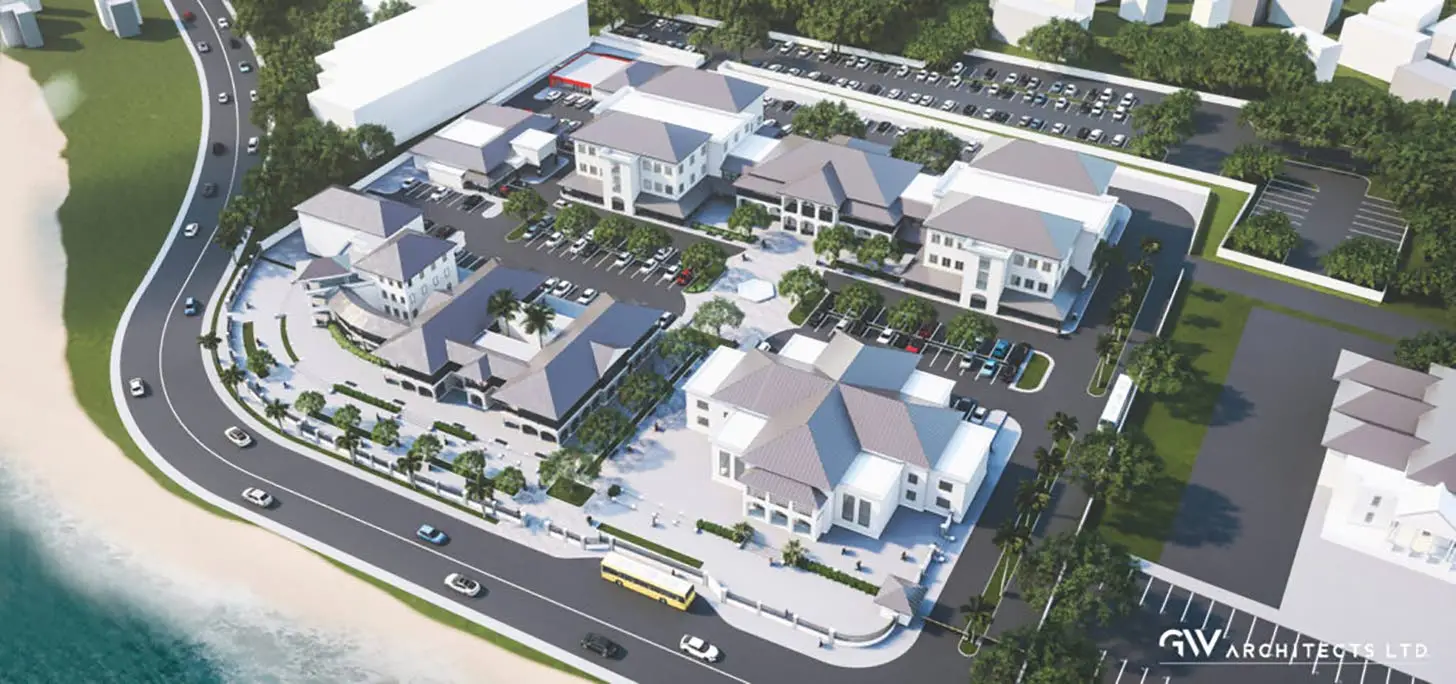
$4.2-billion urban centre for Portland
PORTLAND is set for a major commercial transformation with the planned development of a $4.2-billion urban centre in Boundbrook, Port Antonio.
According to Factories Corporation of Jamaica (FCJ) Chairman Lyttleton Shirley, the Boundbrook Urban Centre will serve as the anchor for a broader redevelopment strategy for the town on Jamaica’s north-eastern coast regarded as the birthplace of the island’s tourism industry.
“This development is about creating job opportunities, about building space, and about the fusion between public and private sectors in one campus to enhance efficiency. It’s a demonstration of how both sectors can co-exist effectively,” Shirley said at the April 3 contract-signing ceremony at FCJ headquarters in New Kingston.
A total of $2.8 billion has been earmarked for construction of the development which will cover 6.68 acres and include 148,000 square feet of commercial space, with 6,500 square feet dedicated to business process outsourcing operations.
It is expected to create hundreds of jobs and boost Port Antonio’s tourism and economic infrastructure from government offices and private sector businesses that will be housed there, serving as a hub for commerce, entertainment, and essential services.
Despite no formal advertising, over 127 per cent of the available space has already been committed, signalling strong demand from prospective tenants.
The Boundbrook Urban Centre is expected to mirror the approach of the Morant Bay Urban Centre, which is in its final stages of completion and ready for phased handover. The Portland project is currently in phase one of a two-phase development. Phase two will be located on adjacent railway lands facing the sea, with construction anticipated to begin shortly.
The development is being spearheaded by FCJ in collaboration with equity partners Barita Investments Limited and National Commercial Bank Capital Markets Limited. The construction is being carried out by China Harbour Engineering Company and is projected to take approximately 24 months.
“This is an excellent example of the good that can be done when the public sector finds a way to collaborate effectively with the private sector,” said Barita Investments CEO Ramon Small-Ferguson.
He described the project as a milestone transaction for both the parish and the wider Jamaican economy and noted that the project could serve as a blueprint for similar developments across the island.
“Jamaica is in a different phase. Projects like these were just a dream several years ago. Now, they’re becoming commonplace,” he added.
Member of Parliament for Portland Eastern Ann-Marie Vaz said the Boundbrook project is part of a broader, holistic development plan for the parish. She pointed out that it follows road infrastructure upgrades and precedes the construction of the Portland bypass.
The development also complements the planned cruise ship terminal at Folly, which together form a coordinated strategy for economic growth in the region.
The plan to construct a cruise ship terminal on lands that comprise the famous Folly Ruins, was publicised in 2023. At the time it was revealed that the Port Authority of Jamaica was set to test the stability of the soil at Port Antonio’s East Harbour.
The public was told that tender documents seeking a geotechnical expert for soil testing had determined that East Harbour appears to be larger than the town’s West Harbour, which houses Errol Flynn Marina and was a popular port for cruise ships many years ago. However, silt build-up has contributed to the inability of the West Harbour to accommodate larger cruise vessels and the port is now utilised mainly by yachts and some boutique cruise ships.
Ground was officially broken for the Boundbrook Urban Centre on Wednesday, August 14, 2024. The centre forms part of FCJ’s wider strategy to create sustainable urban and economic hubs across Jamaica.
In addition to Boundbrook, FCJ has announced upcoming developments in Old Harbour and Naggo Head, St Catherine, as well as in Negril, Westmoreland. These centres are designed to deliver essential public services, commercial opportunities, and employment, contributing to national economic development.
























